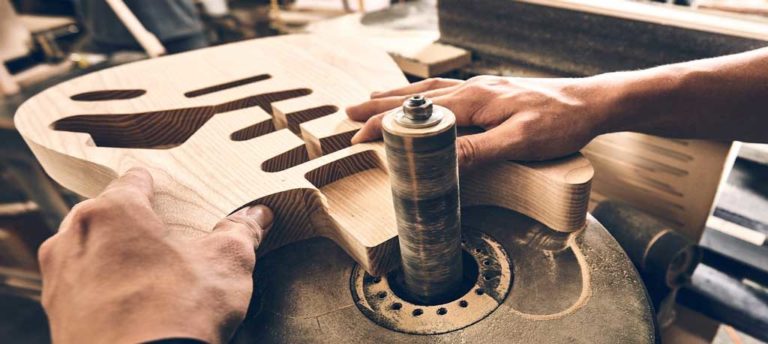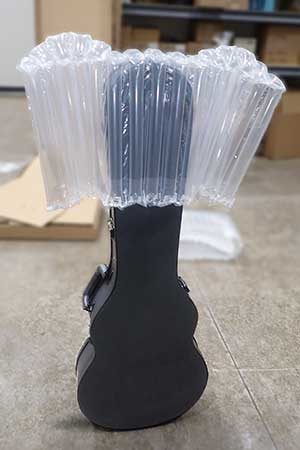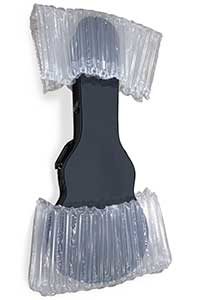
A high-end guitar manufacturer experienced record sales and sought to capitalize on their momentum. They began fulfilling orders using air cushioning sheets wrapped around the instruments, which offered some protection. However, it lacked bracing ability to prevent movement inside the boxes. Shorr and Pregis collaborated closely, engineering an AirSpeed® ChamberPak solution that would protect the products from damages and designing a supply chain solution that guaranteed an adequate supply of packing materials.
From understanding the gaps to providing the best solution, we are with you the whole way.
See how Shorr joined forces with Pregis to provide the ideal solution
The Shorr and Pregis teams worked closely with the customer to identify the areas of improvement as well as the requirements for the solution:
- Protect products and prevent the instruments from shifting
- Versatility, an air cushion to fit various instrument shapes and sizes
- An impressive unboxing experience
We implemented the following steps as part of the solution:
- Engineered a universal ChamberPak accordion that fits any shape or style of guitar.
- Packaging that provides cushioning against impacts and bracing against movement.
- Designed a supply chain solution that guarantees the supply of packing materials.

Shorr and Pregis: How collaboration paved the way to success.
As a result of our partnership, Shorr and Pregis have helped our client significantly reduce damage rates. In addition, we helped generate savings in space, inventory, and freight.

Packing efficiency.
The transition to the new system allowed the customer to integrate ChamberPak Express Auto-Inflator, replacing manual inflation machines. This sped up packing but it also eliminated human error, ensuring a uniform fit in every package.
Space savings.
ChamberPak is shipped flat and deflated, minimizing the space required for storage both in the warehouse and individual packing stations.
Damage reduction.
The laboratory-validated new approach significantly cut damage rates, allowing the guitar manufacturer to get more products into their customers’ hands, all without damage. Not only did this reduce costs for replacement guitars and emissions from returns and reships, but it also gave customers.
